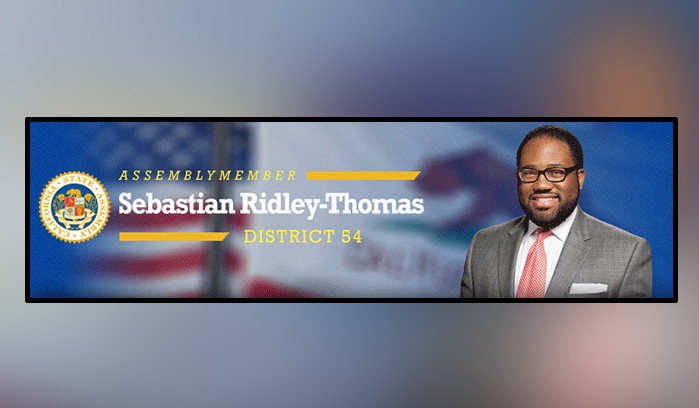[Editor’s Note: Mr. Ridley-Thomas, a Democrat, represents Culver City and the Crenshaw District in the state Assembly.]
With Black History Month over, we would be remiss to not acknowledge the contributions of black Americans to the American labor movement — and their struggle for a good wage for a good day’s work. Nationally, Black History Month has been diluted into a celebration of a few high profile figures. Schoolchildren learn in Social Studies about Harriet Tubman, Frederick Douglass, and Martin Luther King, Jr.
Their stories are tremendous, noteworthy and deserve attention. It is time, however, to give thanks to the people who do the thankless work to improve our lives and strengthen our communities.
One element I love about Black History Month is the ability to follow the path of a trailblazer, then watch to see who has followed in his/her footsteps, furthering our progress towards equity.
Gilbert Lindsay was an L.A. City Hall janitor. He worked his way up to be the first black member of the L.A. City Council.
Councilman Lindsay is credited with providing the guidance and leadership that helped downtown Los Angeles develop into one of the premier urban business centers in the world.
Mr. Lindsay’s time as a janitor with the city Dept. of Water and Powerfostered an influential relationship between labor and politics that remains strong today.
Tom Bradley, the first black mayor of Los Angeles, was an LAPD officer and a member of the department’s police union.
County Supervisor Mark Ridley-Thomas was a member of SEIU Local 99 when he taught literacy at Fairfax High School. He was a member of the Teamsters union when he worked at the MacMillian Bloedel plant in Southeast Los Angeles. His strong relationship with union leaders and rank-and-file members are demonstrated by his determination to fight for higher wages for working women and men.
Viewing the landscape of Greater Los Angeles, we find many great African-American labor leaders who stand on the shoulders of those who came before them.
Ralph Miller, a former NFL player and founding member of the NFL Players Assn., became a probation officer after his football days ended. Mr. Miller joined AFSCME Local 685 shortly after becoming a probation officer. In 1978, he was elected to Local 685’s executive board.
Today he is approaching 40 years of dedicated service to his union’s public safety members.
Douglas Moore, Jr. is executive director of United Domestic Workers of America, the homecare providers union that has 65,000 members. In 2009, the San Diego-Imperial Counties Labor Council named Mr. Moore “Labor Leader of the Year.”
Willie L. Pelote, Sr., assistant director, Political Action Dept., AFSCME International is a strong advocate for working people in government in California.
Yvonne Walker, who developed her leadership skills in the United States Marine Corps, has worked for the Dept. of Justice as a legal secretary more than 20 years. In 2008, Ms. Walker was elected the first African-American president of SEIU Local 1000.
LaPhonza Butler, president of SEIU United Long-Term Care Workers’ Union, represents 180,000 workers across California. Under her leadership, SEIU-ULTCW has improved working conditions and wages for our state’s home care and nursing home workers. Ms. Butler is president of the state Council of Service Employees, an umbrella group for SEIU locals statewide and their 700,000 members.
These are a few of the prominent African-American leaders in the labor movement. Many more are out there. I am thankful for the leadership these dedicated individuals provide. They are fighting the good fight. They are fighting for tenants, whom I hold near when it concerns working families: access, opportunities, wages, benefits and equal rights throughout Los Angeles, California and the United States of America.

